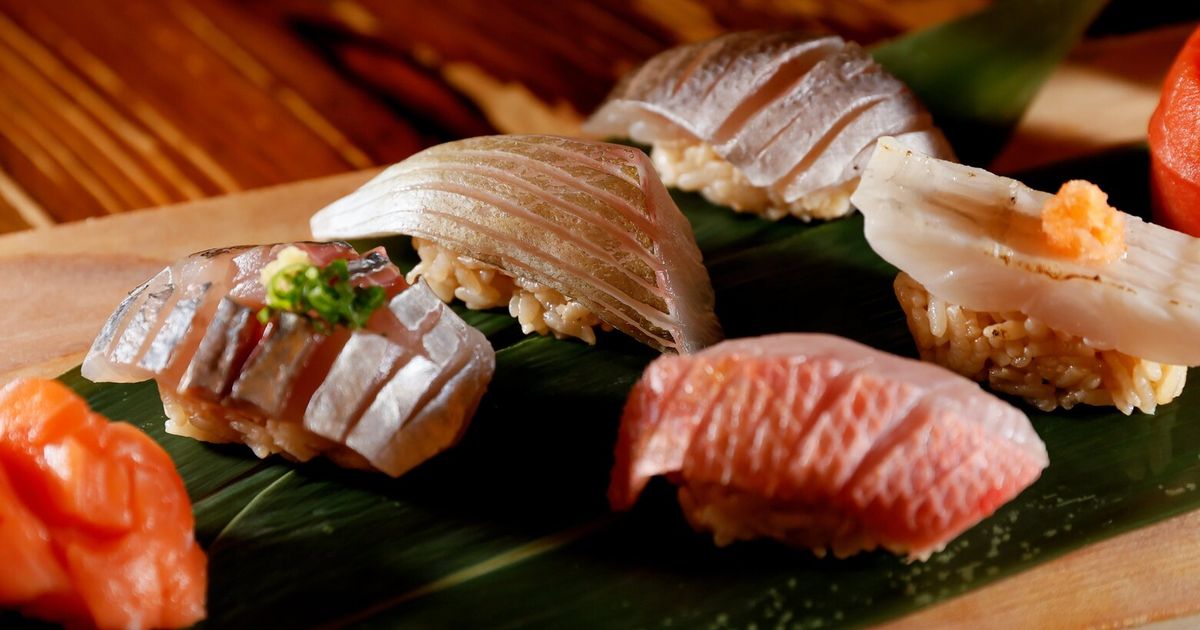
After 29 years, Seattle’s Tsukushinbo has closed. The classic spot for sushi and straightforward Japanese fare — so beloved, it never needed any exterior signage — was opened in Japantown in 1994 by husband-and-wife team Masayoshi “Mike” Hirakawa Caccam and Sayoko Caccam. Masayoshi, who’d already been a sushi chef at Chinatown International District places such as Bush Garden, realized a dream with that debut, running it with his family for many years; after he passed away in 2016, the restaurant got passed along to the two Caccam children, Marin and Sho. Dec. 11 was the last day, but the Tsukushinbo legacy isn’t going away.
Though the compact Tsukushinbo space remained much the same over the years, with some modest interior updates, lots of change happened along the way. “When we first opened, it was just Japanese businessmen smoking cigarettes and drinking and eating,” Marin said of the clientele in a recent interview. She and her brother spent much of their upbringing on premises. Plenty of regulars still recollected those days, she noted: “They’re like, ‘Do you remember, you[‘d] walk in, and it’s all Japanese people, just smoking and drinking? And I always had to bring all my clothes to the dry cleaners the next day.’” Marin laughed. Later, the restaurant became a hangout for Japanese baseball players, with autographs inked on the walls including Ichiro’s, while the patrons overall came to reflect the city at large, as well as a significant restaurant industry contingent.
“It’s very overwhelming — very emotional,” Marin said of the end of Tsukushinbo’s tenure. “This past month, really, I feel so fortunate, so honored and so lucky. I really feel the work of 29 years — the history of 29 years — because all our customers are just trying to come … and wanting to take pictures with us in the restaurant for the last time.”
The closure, however, marks not just an end but a new beginning. “The heart of Tsukushinbo will continue to be present,” as Marin put it, as she and her brother plan to open two new restaurants in the new year, in Tsukushinbo’s space and next door. One, Kakurenbo — which means “hide and seek” — will be, in the Tsukushinbo tradition, hidden in plain sight with no sign. Downstairs will contain a Shōwa era-styled bar and izakaya; upstairs, a sushi bar. Omakase will be on offer, as well as karaoke. The other space will house Onibaba, a specialty shop for onigiri, the traditional snack of rice formed into triangular or cylindrical shapes with various fillings such as fish, fish roe, pickled vegetables or seaweed.
Some longtime regulars are disappointed, but one important party is “very excited,” according to Marin: her mom, Sayoko. “She encouraged us to move forward and step up and do what we want to do,” Marin explained. “She said that we’re capable because of all the experience that we’ve had in the restaurant industry, and all the knowledge, and so she said that now was time to do it.”
The onigiri part of the new plan, Marin elaborated, is “something that my mom always wanted to do … Onibaba is like my mom’s dream and also mine.” “Oni” means “demon,” she said, while “baba” means “old lady.” But, she added, “because it’s an onigiri restaurant, it’s not necessarily demon” for the meaning of the restaurant’s name. The approximation might be “scary lady making onigiri,” representing both her and her mother, she explained. Meanwhile, the izakaya with karaoke is Marin’s own dream; Sho will continue as head sushi chef, but at his own new sushi bar. “So we all have a place in all the spots — that’s why my mom feels pretty good about this whole thing,” Marin concluded.
“It’s [going to be] the same people working,” Marin noted. “It’s still a family-owned restaurant. The food is going to taste the same, or even better.” And next door to the two spots, she said, a friend of hers will be opening a new branch of their own “very, very popular” ramen shop — she’s not at liberty to yet reveal which one. “So it’s going to be nice,” Marin said, “how we’re going to have three Japanese restaurants just lined up next to each other in Japantown.”
The hoped-for opening of Onibaba is by the end of February, with plans to debut Kakurenbo by the end of May.


More Stories
Southwest’s epic holiday meltdown could cost it $825 million
From orphans to best friends, Woodland Park Zoo welcomes new bear cubs
Tacoma zoo welcomes new Sumatran tiger